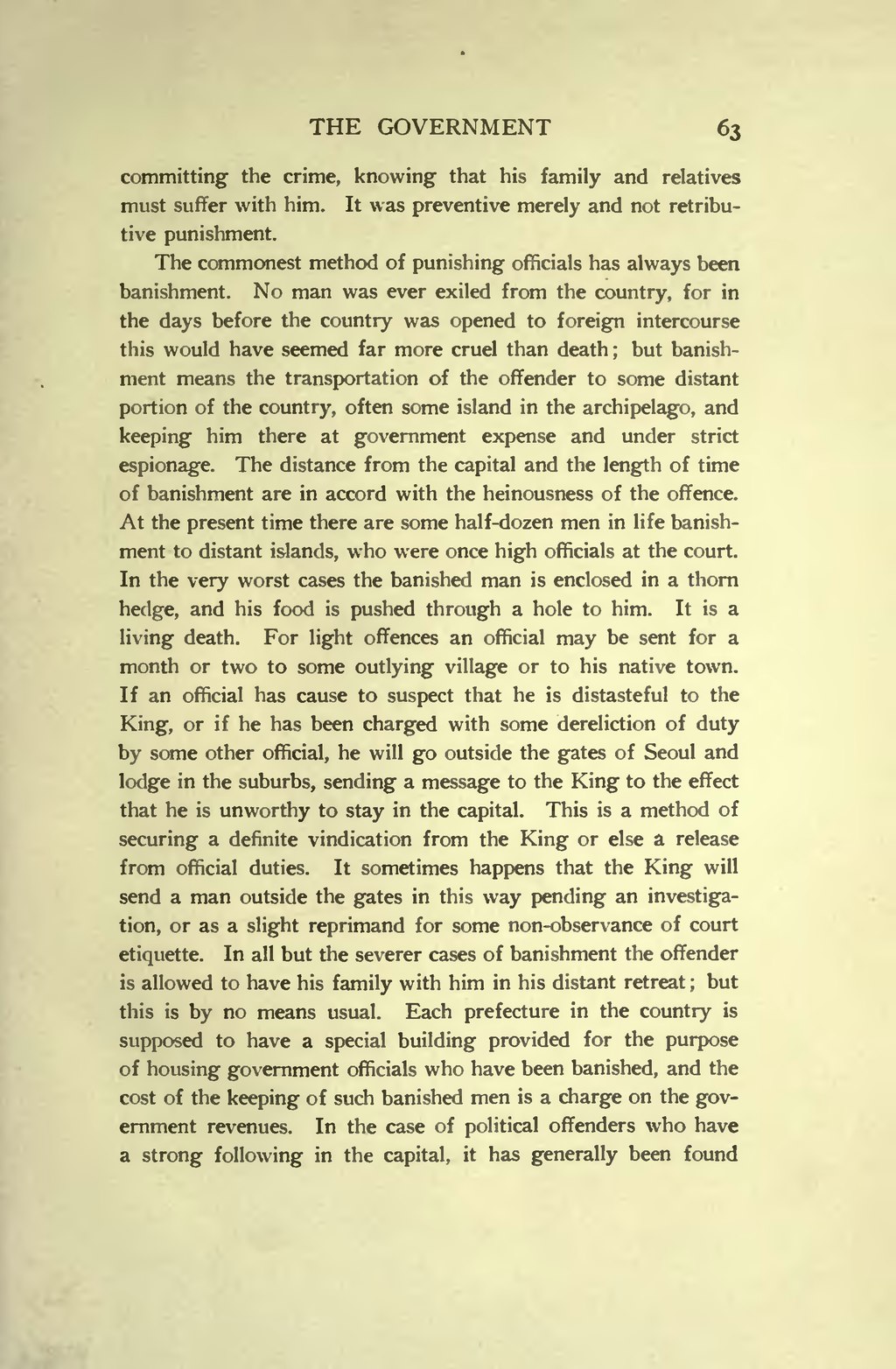committing the crime, knowing that his family and relatives must suffer with him. It was preventive merely and not retributive punishment.
The commonest method of punishing officials has always been banishment. No man was ever exiled from the country, for in the days before the country was opened to foreign intercourse this would have seemed far more cruel than death ; but banishment means the transportation of the offender to some distant portion of the country, often some island in the archipelago, and keeping him there at government expense and under strict espionage. The distance from the capital and the length of time of banishment are in accord with the heinousness of the offence. At the present time there are some half-dozen men in life banishment to distant islands, who were once high officials at the court. In the very worst cases the banished man is enclosed in a thorn hedge, and his food is pushed through a hole to him. It is a living death. For light offences an official may be sent for a month or two to some outlying village or to his native town. If an official has cause to suspect that he is distasteful to the King, or if he has been charged with some dereliction of duty by some other official, he will go outside the gates of Seoul and lodge in the suburbs, sending a message to the King to the effect that he is unworthy to stay in the capital. This is a method of securing a definite vindication from the King or else a release from official duties. It sometimes happens that the King will send a man outside the gates in this way pending an investigation, or as a slight reprimand for some non-observance of court etiquette. In all but the severer cases of banishment the offender is allowed to have his family with him in his distant retreat ; but this is by no means usual. Each prefecture in the country is supposed to have a special building provided for the purpose of housing government officials who have been banished, and the cost of the keeping of such banished men is a charge on the government revenues. In the case of political offenders who have a strong following in the capital, it has generally been found
